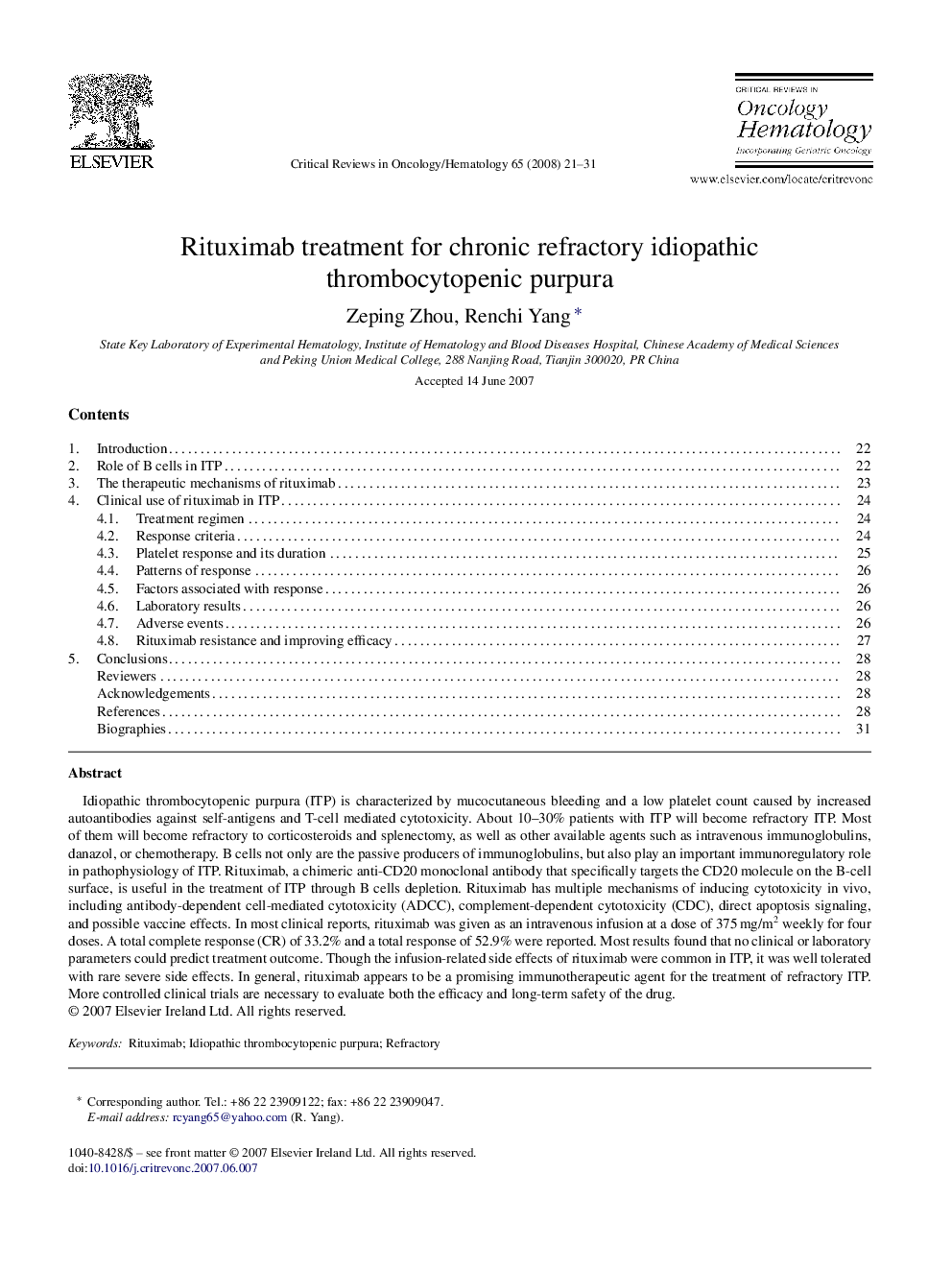| Article ID | Journal | Published Year | Pages | File Type |
|---|---|---|---|---|
| 3329940 | Critical Reviews in Oncology/Hematology | 2008 | 11 Pages |
Abstract
Idiopathic thrombocytopenic purpura (ITP) is characterized by mucocutaneous bleeding and a low platelet count caused by increased autoantibodies against self-antigens and T-cell mediated cytotoxicity. About 10-30% patients with ITP will become refractory ITP. Most of them will become refractory to corticosteroids and splenectomy, as well as other available agents such as intravenous immunoglobulins, danazol, or chemotherapy. B cells not only are the passive producers of immunoglobulins, but also play an important immunoregulatory role in pathophysiology of ITP. Rituximab, a chimeric anti-CD20 monoclonal antibody that specifically targets the CD20 molecule on the B-cell surface, is useful in the treatment of ITP through B cells depletion. Rituximab has multiple mechanisms of inducing cytotoxicity in vivo, including antibody-dependent cell-mediated cytotoxicity (ADCC), complement-dependent cytotoxicity (CDC), direct apoptosis signaling, and possible vaccine effects. In most clinical reports, rituximab was given as an intravenous infusion at a dose of 375Â mg/m2 weekly for four doses. A total complete response (CR) of 33.2% and a total response of 52.9% were reported. Most results found that no clinical or laboratory parameters could predict treatment outcome. Though the infusion-related side effects of rituximab were common in ITP, it was well tolerated with rare severe side effects. In general, rituximab appears to be a promising immunotherapeutic agent for the treatment of refractory ITP. More controlled clinical trials are necessary to evaluate both the efficacy and long-term safety of the drug.
Related Topics
Health Sciences
Medicine and Dentistry
Hematology
Authors
Zeping Zhou, Renchi Yang,
